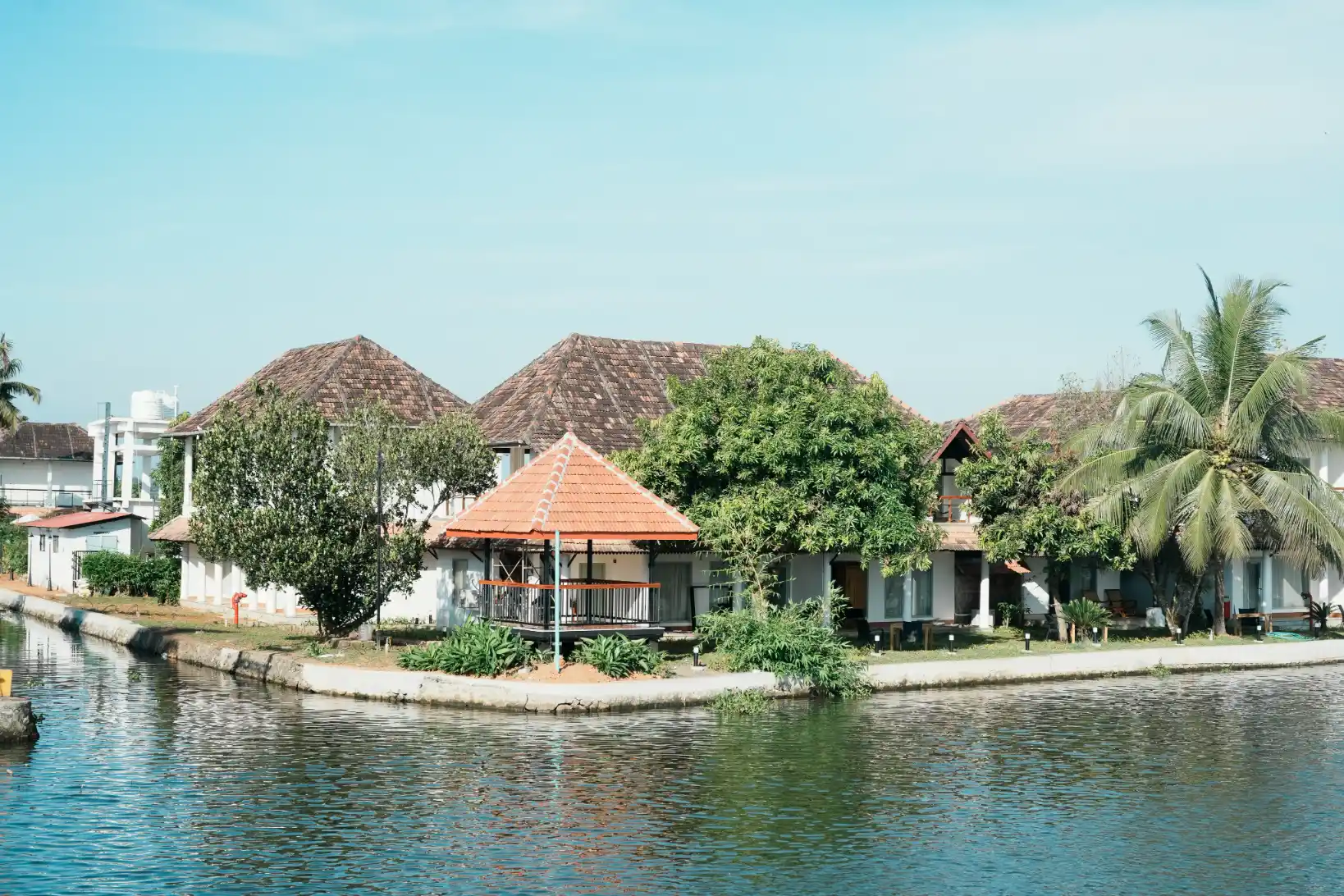An overview of Texas short-term rental regulations, including city-specific laws, licensing, taxes, and compliance in San Antonio.
San Antonio hosts top locations for starting a profitable Airbnb business in Texas. However, before venturing into this endeavor, investors need to check short-term rental laws. In Texas, vacation rentals are primarily regulated at the local level, as the state lacks comprehensive statewide regulations.
This article outlines San Antonio’s regulatory landscape and compares it with other major Texas Airbnb markets.
Texas' Definition of a Short-Term Rental
Unlike Illinois or Florida, which have statewide definitions, Texas lacks a comprehensive state-level definition for short-term rentals. This leaves it to local jurisdictions.
In San Antonio, a short-term rental is defined as:
The use of a residential property, or a portion, for lodging for payment with a term of less than 30 consecutive days.
Eligible properties under San Antonio regulations include:
- Single-family homes
- Residential units in multi-unit buildings, condominiums, or cooperatives
- Portions of residential properties when the owner is present on-site.
This definition excludes:
- Properties for commercial purposes
- Hotels, motels, and traditional bed and breakfast establishments
- Transient accommodations classified differently for tax purposes.
While this definition specifically applies to San Antonio, other Texas cities may use different definitions in their regulations.
Starting a Short-Term Rental Business in San Antonio
Launching an Airbnb business in San Antonio involves key steps to ensure compliance with local regulations. State-level requirements are minimal, San Antonio has a structured regulatory framework.
San Antonio Airbnb hosts and operators need to obtain a combination of:
- Business registration: Short-term rental owners must register their business with the city. They don't need an LLC,purpose; some investors choose one for liability protection.
- Licensing and permitting: To operate legally, vacation rentals in San Antonio require a Short-Term Rental (STR) permit. Applications can be submitted through the City of San Antonio's online portal, and fees vary. Permits mustyearly renewal.
- Required paperwork: To apply for an STR permit, you must submit various documents, including property address, size and number of rooms, owner's information, local contact person's information, proof of ownership, proof of insurance, and additional documentation.
- Tax registration: You must register to collect and remit the City of San Antonio Hotel Occupancy Tax, 9% of the rental price.
- Insurance: San Antonio requires short-term rental operators to maintain adequate coverage, including liability protection.
- Zoning: San Antonio has zoning restrictions for short-term rentals. STRs are restricted or prohibited in certain districts, especially single-family residential areas.
- Safety measures: Properties must comply with occupancy limits and safety requirements, including smoke alarms, carbon monoxide detectors, and fire extinguishers.
- Best practices for starting a San Antonio short-term rental business include researching city regulations for your property's location and zoning. The City of San Antonio's website has detailed information, and consulting a legal expert familiar with local short-term rental laws is advisable.
Before listing your property for rent, ensure you’ve met all local requirements for starting a vacation rental business in San Antonio.
Short-Term Rental Licensing Requirements in San Antonio
Texas lacks state-wide licensing or permitting requirements for short-term rentals. However, San Antonio has its own regulatory framework.
The property owner must submit the STR permit application, which must include detailed information about:
- The property address and zoning classification.
- The property size and number of bedrooms.
- Owner identification and contact information.
- Local contact person to resolve issues promptly.
- Proof of property ownership.
- Proof of sufficient insurance coverage
- Upon request, floor plans are needed.
In San Antonio, STR permits are valid for one year and must be renewed annually. Hosts need to pay a fee for each renewal, with current fees on the City of San Antonio website.
Operating a vacation rental without a valid permit may result in significant fines and potential loss of operating privileges.
San Antonio Short-Term Rental Tax
In San Antonio, short-term rental operators have various tax obligations:
- Hotel Occupancy Tax: Operators must collect and remit the City of San Antonio Hotel Occupancy Tax, currently 9% of the rental price.
- State and Federal Income Tax: Report all rental income on state and federal income tax returns.
- Property Tax: In Texas, property taxes are based on assessed value and usage. Operating a short-term rental affects property tax assessments.
Short-term rental platforms like Airbnb, VRBO, and Booking.com often collect and remit certain taxes on behalf of hosts, but operators should verify which are covered and which they need to manage.
San Antonio Airbnb hosts face these taxes:
- San Antonio Hotel Occupancy Tax (9%)
- State Hotel Occupancy Tax (6%)
- Rental income tax, including federal and state rates
- Property tax, including county and municipal rates
Vacation rental owners in San Antonio can deduct specific business-related expenses to reduce their taxable income, including:
- Real estate property depreciation
- Mortgage interest
- Property and short-term rental insurance
- Property taxes
- Marketing and advertising expenses
- Property management fees
- Cleaning and maintenance charges
- Accounting, legal, and other professional services
- Furniture, appliances, and guest supplies
- Utility bills
- Home office expenses
San Antonio Airbnb operators must understand all applicable federal, state, and local taxes to ensure timely payment. They should also be aware of eligible deductions to enhance tax benefits and optimize cash flow.
Short-Term Rental Laws by Texas City
Unlike some states that have statewide short-term rental regulations, Texas leaves most authority to local jurisdictions. This creates significant differences across cities.
1. San Antonio Short-Term Rental Regulations
San Antonio has established a regulatory framework for short-term rentals that includes:
- Mandatory STR permitting
- Annual renewals
- Hotel Occupancy Tax collection
- Insurance requirements
- Zoning restrictions
- Safety standards
- Requirements for local contact person
San Antonio's regulations aim to balance the economic benefits of short-term rentals with neighborhood compatibility and guest safety. Special rules apply to STRs in historic districts, which face additional regulations to preserve their character.
The 9% Hotel Occupancy Tax in San Antonio is competitive withother major Texas cities.
2. Austin Short-Term Rental Regulations
Austin has implemented strict short-term rental regulations in Texas. The city categorizes STRs into different types:
- Type 1: Owner-occupied (homesteaded) properties
- Type 2: Non-owner-occupied properties
Austin enforces strict geographic distribution requirements. Type 2 STRs restricted to commercial or mixed-use zones. The city also imposes occupancy limits, noise regulations, and parking requirements.
In Austin, operating licenses are mandatory, with different requirements based on STR type. Type 1 STRs (owner-occupied) are more permissible in residential zones. Violations can lead to significant fines and license revocation.
Austin's Hotel Occupancy Tax is 11%, higher than San Antonio's 9%.
3. Dallas Short-Term Rental Regulations
Dallas regulates short-term rentals through zoning ordinances and registration requirements. Compared to Austin and San Antonio, it has more lenient regulations.
Operators must register with the city and obtain a Certificate of Occupancy. Dallas focuses on addressing nuisance complaints related to noise, parking, and trash through existing city ordinances.
Dallas’ Hotel Occupancy Tax is 7%, lower than that of San Antonio and Austin.
4. Houston Short-Term Rental Regulations
Houston has minimal regulations for short-term rentals, with no city-wide permitting or licensing requirements. This makes it one of the most permissive major Texas cities for short-term rental operations.
Houston has no STR-specific licensing requirements, but general business licenses may apply depending on the operational scale. Enforcement is complaint-based, addressing issues through existing city ordinances rather than specific regulations for STRs.
The Hotel Occupancy Tax in Houston is 7%, the same as Dallas and lower than San Antonio and Austin.
Bottom Line
Texas short-term rental laws aim to balance the economic opportunities of vacation rentals with neighborhood compatibility and guest safety. State-level regulations are minimal, while each city has its own rules that range from limited regulation of vacation rentals, like Houston, to strict controls, like Austin.
San Antonio has structured regulations for short-term rentals that safeguard neighborhoods and guests. The city's 9% Hotel Occupancy Tax is competitive, and the permitting process is clear compared to other major urban markets.
Hosts must research and understand the local rules and comply with all requirements. Before investing in a short-term rental property in San Antonio or elsewhere in Texas, thorough investigation of local regulations is essential for successful operations.

.webp)



